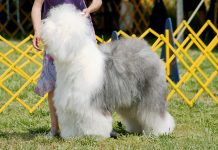History and Origins of the Weimaraner Breed

The Weimaraner is a distinctive and versatile breed with a rich history. Here’s an overview of its origins:
- Noble Beginnings: The Weimaraner originated in Germany during the early 19th century. It was developed as a hunting dog by German nobility, particularly the Grand Duke Karl August of Weimar.
- Hunting Heritage: Weimaraners were bred to be all-purpose hunting dogs capable of tracking game of all sizes, from small game like rabbits to larger game like deer. They are particularly skilled in hunting birds, both on land and in water.
- Breeding Development: The exact ancestry of the Weimaraner is unclear, but it is believed to descend from various German hunting breeds including the Bloodhound, Pointer, German Shorthaired Pointer, and various types of scent hounds.
- Distinctive Silver-Gray Coat: One of the most striking features of the Weimaraner is its unique coat color, which is a sleek and shiny silver-gray. This coat color helped the breed blend into the terrain while hunting and also contributed to its aristocratic appearance.
- Popularity in the United States: The Weimaraner was introduced to the United States in the early 20th century and gained popularity as a hunting and companion dog. It was recognized by the American Kennel Club (AKC) in 1943.
- Versatile Working Dog: Beyond hunting, Weimaraners have excelled in various roles including search and rescue, police work, and even as therapy dogs. They are known for their intelligence, athleticism, and loyalty.
Physical Characteristics and Appearance of Weimaraners
The Weimaraner is a medium to large-sized dog known for its elegant and athletic appearance. Here are the key physical characteristics of the breed:
- Size: Male Weimaraners typically stand between 24 to 27 inches (61 to 69 cm) at the shoulder, while females are slightly smaller at 22 to 25 inches (56 to 63 cm). They weigh between 55 to 85 pounds (25 to 39 kg).
- Muscular Build: Weimaraners have a sleek, muscular build that reflects their hunting heritage. They are agile and built for endurance, with a deep chest and well-developed limbs.
- Coat: The Weimaraner’s short coat is smooth, shiny, and lies close to the body. The most iconic coat color is a silvery-gray, although some may have a slightly darker or lighter shade. The coat is low-maintenance and requires minimal grooming.
- Head: The Weimaraner’s head is distinctive with a moderately long muzzle, strong jaws, and expressive amber, gray, or blue-gray eyes. The ears are moderately long and hang close to the head.
- Tail: Traditionally, Weimaraners’ tails are docked to a short length, although natural tails are becoming more common due to changing preferences and regulations.
- Expression: Weimaraners have an intelligent and alert expression. Their eyes convey a sense of keenness and curiosity.
- Gait: Weimaraners move with grace and efficiency, covering ground with a smooth and effortless gait. They are known for their stamina and endurance, making them excellent hunting companions.
- Temperament: Weimaraners are intelligent, energetic, and affectionate dogs. They are known for their strong bond with their families and thrive on companionship and activity.
Overall, the Weimaraner is a striking and athletic breed with a distinctive appearance and versatile abilities. They are well-suited for active families and individuals who can provide them with plenty of exercise, mental stimulation, and love.
Weimaraner Temperament and Personality Traits
The Weimaraner is known for its unique blend of intelligence, energy, and affection. Understanding their temperament and personality traits is essential for providing them with the right training and care:
- Intelligent: Weimaraners are highly intelligent dogs known for their problem-solving abilities and quick learning. They thrive on mental stimulation and enjoy learning new tasks.
- Energetic: Weimaraners are a high-energy breed that requires regular exercise and activity to stay happy and healthy. They excel in various canine sports such as agility, tracking, and obedience.
- Affectionate: Despite their active nature, Weimaraners are affectionate and loyal companions who form strong bonds with their families. They enjoy spending time with their human companions and thrive on attention.
- Alert and Protective: Weimaraners make excellent watchdogs due to their alert nature. They are naturally protective of their families and may be reserved with strangers until properly introduced.
- Independent Thinkers: Weimaraners can be independent-minded and may exhibit stubbornness at times. They require consistent and patient training to channel their intelligence in positive ways.
- Social: Properly socialized Weimaraners are friendly and sociable dogs who enjoy interacting with people and other animals. Early socialization is important to prevent shyness or timidity.
- Hunting Instincts: Weimaraners have a strong prey drive and were originally bred as hunting dogs. They may chase small animals if not properly trained and supervised.
- Family-Oriented: Weimaraners thrive as part of an active family that can provide them with plenty of companionship, exercise, and mental stimulation. They may not do well with long periods of solitude.
- Sensitive: Weimaraners are sensitive dogs who respond well to positive reinforcement training methods. Harsh training techniques can lead to fearfulness or avoidance behaviors.
- Adaptable: While Weimaraners are known for their high energy levels, they can adapt well to different living environments as long as their exercise needs are met.
Training and Exercise Needs for Weimaraners
Weimaraners are athletic dogs that require both physical exercise and mental stimulation to thrive. Here are important considerations for their training and exercise needs:
- Early Training: Start training your Weimaraner puppy as soon as you bring them home. Begin with basic obedience commands such as sit, stay, come, and leash walking. Positive reinforcement techniques work best with this breed.
- Consistent Leadership: Establish yourself as a calm and confident leader to earn your Weimaraner’s respect. Consistency and patience are key to successful training.
- Socialization: Expose your Weimaraner to various people, animals, sights, and sounds from an early age to promote positive social skills. This helps prevent shyness or aggression towards unfamiliar situations.
- Exercise Requirements: Weimaraners are active dogs that need plenty of daily exercise to prevent boredom and destructive behaviors. Aim for at least 60-90 minutes of physical activity per day, which can include brisk walks, runs, playtime, and interactive games.
- Canine Sports: Engage your Weimaraner in canine sports such as agility, tracking, and obedience trials to challenge their mind and body. These activities tap into their natural abilities and provide mental stimulation.
- Interactive Toys: Provide puzzle toys, treat-dispensing toys, and interactive games to keep your Weimaraner mentally engaged and prevent boredom when indoors.
- Positive Reinforcement: Use positive reinforcement methods such as treats, praise, and play to reward desired behaviors. Avoid harsh corrections, as they can undermine your Weimaraner’s trust and willingness to learn.
- Supervision: Supervise your Weimaraner, especially in outdoor settings, to prevent them from wandering off or chasing wildlife due to their hunting instincts.
By meeting their training and exercise needs, you can help your Weimaraner develop into a well-mannered, balanced, and happy companion. They thrive on companionship, activity, and mental challenges, making them ideal for active families and individuals who can provide them with the attention and stimulation they need.
Health Considerations and Common Issues in Weimaraners
Weimaraners are generally a healthy breed, but like all dogs, they are prone to certain genetic and health issues. Understanding these common conditions can help you provide the best care for your Weimaraner:
- Hip Dysplasia: This is a common orthopedic condition in Weimaraners where the hip joint doesn’t develop properly, leading to arthritis and mobility issues. Regular veterinary check-ups and screening can help detect and manage hip dysplasia.
- Hypothyroidism: Weimaraners may be prone to hypothyroidism, a condition where the thyroid gland doesn’t produce enough hormones. Symptoms include weight gain, lethargy, and skin problems. Treatment involves hormone replacement therapy.
- Gastric Dilatation-Volvulus (GDV), or Bloat**: Weimaraners, like other deep-chested breeds, are at risk for bloat, a life-threatening condition where the stomach fills with gas and twists. Immediate veterinary attention is required if bloat is suspected.
- Dilated Cardiomyopathy (DCM): Weimaraners are susceptible to DCM, a serious heart condition that affects the heart muscles’ ability to pump blood effectively. Regular cardiac screenings are recommended for breeding dogs.
- Hypertrophic Osteodystrophy (HOD): This is a developmental bone disease that mainly affects young, rapidly growing Weimaraner puppies. Symptoms include lameness, fever, and joint pain. Treatment involves supportive care and pain management.
- Entropion: Weimaraners may develop entropion, a condition where the eyelid rolls inward, causing irritation and discomfort. Surgical correction may be necessary in severe cases.
- Allergies: Weimaraners may be prone to skin allergies, food allergies, or environmental allergies. Symptoms include itching, redness, and skin infections. Identifying and avoiding allergens is key to managing allergies.
- Cancer: Weimaraners have a higher risk of certain cancers compared to other breeds. Regular veterinary check-ups and early detection are important for managing and treating cancer.
- Ear Infections: Due to their floppy ears, Weimaraners are prone to ear infections. Regular ear cleaning and inspection can help prevent ear problems.
Living with a Weimaraner: Suitable Environments and Lifestyle Considerations
Weimaraners are active, intelligent, and affectionate dogs that thrive in environments where they receive ample exercise, mental stimulation, and companionship. Here are important considerations for living with a Weimaraner:
- Active Lifestyle: Weimaraners are high-energy dogs that require plenty of exercise and mental stimulation to prevent boredom and destructive behaviors. Daily activities should include brisk walks, runs, playtime, and interactive games.
- Secure Enclosures: Due to their hunting instincts and athleticism, Weimaraners should be kept in a secure and escape-proof enclosure, especially when outdoors. They may chase small animals if not properly supervised.
- Socialization: Early and ongoing socialization is crucial for Weimaraners to develop good manners and positive interactions with people and other animals. Expose them to various environments, sounds, and experiences from a young age.
- Training: Weimaraners are intelligent but can be independent-minded. Consistent and positive reinforcement-based training is essential to channel their energy and intelligence in positive ways.
- Companionship: Weimaraners thrive on companionship and do best in homes where they are not left alone for long periods. They are affectionate dogs that enjoy being part of the family.
- Grooming: Weimaraners have a short coat that is low-maintenance and requires regular brushing to remove loose hair. Pay attention to their ears and keep them clean to prevent infections.
- Healthcare: Schedule regular veterinary check-ups, vaccinations, and preventive care to ensure your Weimaraner stays healthy and receives prompt treatment for any health issues.
- Safety Precautions: Be mindful of Weimaraners’ sensitivity to temperature extremes. Provide shade and fresh water during hot weather, and protect them from cold temperatures.
- Active Engagement: Engage your Weimaraner in canine sports, such as agility, obedience, or tracking, to provide mental challenges and strengthen your bond.
By providing a loving home environment, regular exercise, proper training, and attentive healthcare, you can create a fulfilling life for your Weimaraner. They are loyal, intelligent, and active companions that thrive on companionship and interaction with their families.
Weimaraner Variations and Breeding Practices

The Weimaraner breed is relatively standardized in appearance and temperament, but there are some variations and considerations to be aware of when it comes to breeding practices:
- Coat Color: Weimaraners are known for their distinctive silver-gray coat color, which is a defining characteristic of the breed. However, variations in shade can occur, ranging from lighter to darker shades of gray. Some Weimaraners may also exhibit a slight blue or taupe tint in their coat.
- Long-Haired Weimaraners: While the traditional Weimaraner has a short, sleek coat, a long-haired variety also exists. Long-haired Weimaraners have longer and softer coats, but they are not as common as the short-haired variety. Long-haired Weimaraners are recognized by some kennel clubs but are considered a deviation from the breed standard in others.
- Size and Structure: Weimaraners are generally medium to large-sized dogs with a muscular build and athletic physique. Breeders focus on maintaining the breed’s standard size and structure to ensure they are capable hunting dogs with endurance and agility.
- Temperament and Working Ability: Responsible breeders prioritize temperament and working ability in Weimaraners. They aim to produce dogs that are intelligent, trainable, and have a strong hunting instinct. Weimaraners should be confident, energetic, and sociable with proper socialization.
- Health Screening: Ethical breeders conduct thorough health screenings on their breeding stock to identify and eliminate genetic health issues. Common health screenings for Weimaraners include hip dysplasia, elbow dysplasia, eye disorders, and genetic conditions like von Willebrand’s disease.
- Breeding Goals: Reputable breeders have specific breeding goals aimed at improving the overall health, temperament, and conformation of Weimaraners. They carefully select breeding pairs based on pedigree, health clearances, working ability, and adherence to breed standards.
- Ethical Placement of Puppies: Responsible breeders prioritize the well-being of their puppies and ensure they are placed in suitable homes. They educate potential puppy owners about the breed’s needs and characteristics and provide ongoing support and guidance.
- Avoiding Overbreeding: Ethical breeders are mindful of not overbreeding Weimaraners to maintain the breed’s integrity and health. They limit the number of litters produced by each breeding dog and prioritize the welfare of both the dogs and the breed as a whole.
- Club Affiliations: Reputable Weimaraner breeders often belong to national and local breed clubs that promote responsible breeding practices and provide resources for breed enthusiasts. These clubs facilitate networking among breeders and educate the public about the breed.
- Continued Education: Dedicated Weimaraner breeders are committed to ongoing education and improvement. They stay updated on the latest research, trends, and advancements in dog breeding and strive to contribute positively to the breed’s future.
By supporting responsible breeding practices and working with reputable breeders, Weimaraner enthusiasts can help preserve the breed’s unique characteristics and ensure the health and well-being of future generations of Weimaraners.
50 Best Names with Meanings for Weimaraners
Naming your Weimaraner is a fun and important decision! Here’s a list of 50 great names with meanings that suit the unique characteristics and noble demeanor of Weimaraners:
- Atlas – Greek titan who held up the sky, symbolizing strength and endurance.
- Athena – Greek goddess of wisdom and war, representing intelligence and bravery.
- Zephyr – Greek god of the west wind, symbolizing a gentle and free spirit.
- Nova – Latin for “new,” representing a fresh start with your new companion.
- Juno – Roman goddess of marriage and protection, ideal for a loyal and watchful dog.
- Rex – Latin for “king,” perfect for a regal and commanding Weimaraner.
- Luna – Latin for “moon,” symbolizing elegance and mystery.
- Apollo – Greek god of light and music, representing creativity and vitality.
- Stella – Latin for “star,” ideal for a Weimaraner that shines bright.
- Maximus – Latin for “greatest,” suitable for a strong and impressive dog.
- Vera – Latin for “truth,” ideal for a loyal and honest companion.
- Thor – Norse god of thunder, signifying strength and protection.
- Sasha – Russian for “defender of mankind,” suitable for a protective Weimaraner.
- Blaze – Referring to a strong and fiery presence, perfect for a spirited dog.
- Astra – Latin for “star,” symbolizing brightness and radiance.
- Cleo – Short for Cleopatra, meaning “glory of the father.”
- Hunter – Signifying a strong and agile companion, perfect for an active Weimaraner.
- Zara – Arabic for “princess,” representing elegance and grace.
- Rogue – Independent and adventurous, ideal for a spirited Weimaraner.
- Jett – Black gemstone, symbolizing darkness and mystery.
- Loki – Norse trickster god, perfect for a playful and mischievous Weimaraner.
- Delta – Symbolizing change and transformation, suitable for an adaptable dog.
- Jasmine – Flower name, symbolizing beauty and elegance.
- Kai – Hawaiian for “sea,” representing strength and resilience.
- Sable – Referring to a black fur coat, perfect for a sleek Weimaraner.
- Zephyr – Greek god of the west wind, representing a gentle and free spirit.
- Venus – Roman goddess of love and beauty, suitable for an elegant Weimaraner.
- Rex – Latin for “king,” perfect for a commanding and regal dog.
- Phoenix – Mythical bird symbolizing rebirth and renewal.
- Jagger – Strong and charismatic, suitable for a confident Weimaraner.
- Sasha – Russian for “defender of mankind,” ideal for a protective companion.
- Saber – Referring to a sharp and agile nature, suitable for a vigilant Weimaraner.
- Cassius – Latin for “hollow,” evoking strength and resilience.
- Zara – Arabic for “princess,” representing elegance and grace.
- Koda – Native American for “friend,” ideal for a loyal and devoted companion.
- Vega – Brightest star in the constellation Lyra, symbolizing brilliance.
- Raven – Black bird associated with mystery and intelligence.
- Juno – Roman goddess of marriage and protection, ideal for a watchful and loyal dog.
- Jett – Black gemstone, symbolizing darkness and mystery.
- Luna – Latin for “moon,” representing elegance and mystique.
- Blaze – Referring to a strong and fiery presence, suitable for a spirited Weimaraner.
- Zara – Arabic for “princess,” representing elegance and grace.
- Kai – Hawaiian for “sea,” symbolizing strength and resilience.
- Cleo – Short for Cleopatra, meaning “glory of the father.”
- Loki – Norse trickster god, perfect for a playful and mischievous Weimaraner.
- Sasha – Russian for “defender of mankind,” ideal for a protective Weimaraner.
- Delta – Symbolizing change and transformation, suitable for an adaptable dog.
- Astra – Latin for “star,” symbolizing brightness and radiance.
- Jasmine – Flower name, symbolizing beauty and elegance.
- Zephyr – Greek god of the west wind, representing a gentle and free spirit.
Choose a name that resonates with your Weimaraner’s personality, appearance, and the qualities you admire. Whether you prefer a strong and commanding name or a subtle and elegant name, there’s a perfect fit waiting for your new companion!

In conclusion, this comprehensive guide to Weimaraner dogs has provided a detailed exploration of this unique and versatile breed. Throughout our discussion, we’ve delved into the history, distinctive characteristics, and essential care considerations that define Weimaraners. Known for their intelligence, athleticism, and affectionate nature, Weimaraners make wonderful companions for active individuals and families. They excel in various activities, including hunting, agility, and obedience, showcasing their versatility and drive. As you embark on your journey with a Weimaraner, may you appreciate their unique qualities and form a strong bond with this remarkable breed, creating lasting companionship and joy together.



























